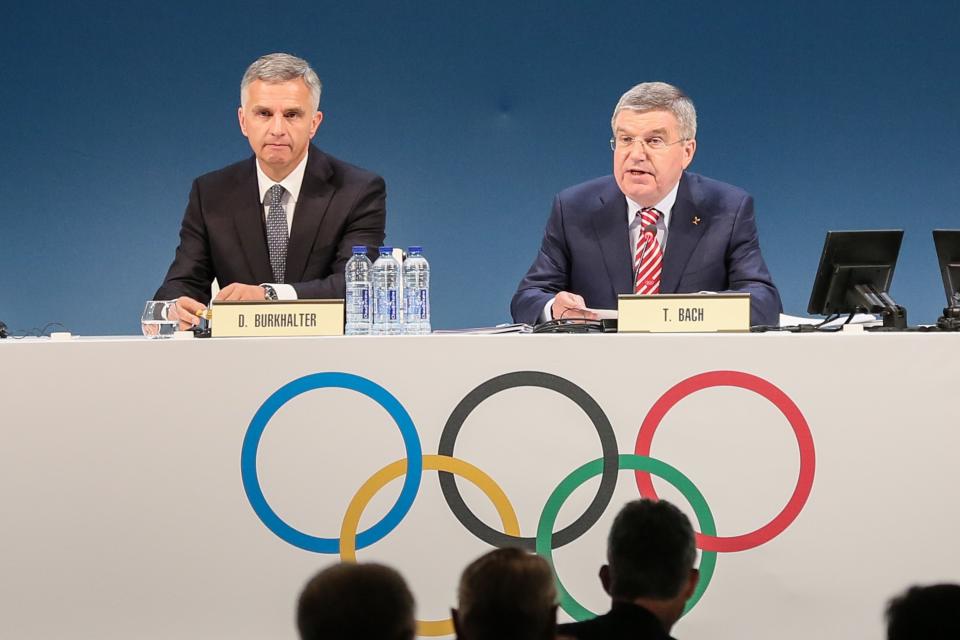IOC changes could make Olympics more sustainable, easier to bid on, but will they be enough?

The International Olympic Committee has taken a ton of deserved criticism for its bidding process after four out of the six bidders for the 2022 Winter Olympics dropped out by October, leaving only the options of Beijing, China and Almaty, Kazakhstan, and it appears IOC executives have been listening. IOC president Thomas Bach, who took over that role from Jacques Rogge last September, persuaded the committee to vote in favour of his entire 40-point "Olympic Agenda 2020" reform package Monday. That will lead to some major changes, perhaps most notably making it easier and cheaper for cities to bid for the Olympics and allowing certain events to be held in different cities or countries to avoid building white-elephant facilities.
There are other key elements in that package, too, including creating an IOC TV channel to promote Olympic sports between Games, allowing for increased numbers of different sports in an Olympics (but the same numbers of overall events and athletes), and strengthening the IOC's anti-discrimination language by specifically adding sex and sexual orientation to the Olympic charter, all of which have their merits. Still, it's the bidding process and the linked sustainablility issues that arguably pose the IOC's biggest problems right now, and these moves at least sound like they should help with that. Whether they'll be enough remains to be seen.
There's no greater indication of how flawed the current Olympic bid setup is than what happened with 2022. Four of the six finalists (Norway, Sweden, Poland and Ukraine) dropped out thanks to huge projected costs and incredible popular opposition, and bids in Germany and Switzerland didn't even get that far thanks to locals declining to support the bloated requirements of the Games. As Yahoo's Dan Wetzel wrote after Norway exited in October, the current process was unacceptable to most democratic nations:
Essentially the only places interested in hosting the 2022 games are countries where actual citizens aren't allowed a real say in things – communist China and Kazakhstan, a presidential republic that coincidentally has only had one president since it split from the old USSR in 1989.
Essentially the entire world has told the IOC it's a corrupt joke.
"The vote is not a signal against the sport, but against the non-transparency and the greed for profit of the IOC," Ludwig Hartmann, a German politician said when his country said no. "I think all possible Olympic bids in Germany are now out of question. The IOC has to change first. It's not the venues that have to adapt to the IOC, but the other way around."
Well, it looks like the IOC actually has adapted, in some respects at least. One big one is lowering the costs to just bid for the Games, which have often been about $100 million for the Summer Olympics. The IOC will now contribute to the costs of bid campaigns and pay for some travel. Perhaps even more importantly, the IOC will now allow more exploratory conversations without a formal bid, which should lead to less mid-race withdrawals.
The crucial element here may be allowing certain Olympic events to be spread out to other cities or countries, though. The IOC has always been critical of this, trying to keep the Olympics as neatly contained as possible, but the last two Winter Olympics in particular (Vancouver-Whistler in 2010 and Sochi- Krasnaya Polyana in 2014) have seen substantial distances between mountain and city events, and those haven't seemed to hurt the events too badly. Moreover, this could be big for sustainability and lowering bids' costs. A lot of Olympic sites have had to spend tons of money building facilities for obscure events that can't be used regularly after the Games. If some of those events can be held in other cities or countries, that could do a lot to defray excessive costs and waste.
While all these are substantial changes, and praiseworthy ones (adding sexual orientation in particular is impressive, considering how the IOC failed on that front in Sochi; athletes like Eric Radford shouldn't have to be fearful ahead of a Games now) it's worth noting that they didn't come out of a blue sky. The IOC has been facing a storm of media criticism since Norway's withdrawal (and before), and that's going to intensify given the problems with funding and infrastructure in Brazil ahead of the 2016 Summer Olympics in Rio. The Swiss government also appears set to pass strict anti-corruption laws that will provide more oversight of bodies like FIFA and the IOC. The IOC needed to change, and while it's notable that they've made some changes, even these may not go far enough.
An important and desirable end goal to reduce the amounts of Olympic waste and excess is to make it easier for the Games to be held in cities that have previously hosted, reducing the amounts of new infrastructure that need to be built. There's very little on that front in these changes, and while allowing certain events to be held where facilities already exist is a good step, it's just a step. It's certainly possible we could see more frequent Olympic returns down the road, especially now that the bidding process has been simplified and cheapened, but the IOC will still have to be persuaded away from the desire to put up new facilities all over the globe. Monday's moves are valuable, but they're just the first part of what needs to be done to make the Games sustainable overall.

 Yahoo Sports
Yahoo Sports 

